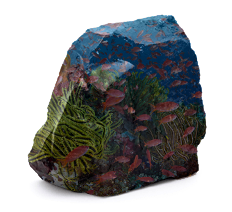Coal spills could kill coral
 A new study suggests a coal spill on the Great Barrier Reef could bring grave consequences.
A new study suggests a coal spill on the Great Barrier Reef could bring grave consequences.
Researchers from James Cook University in north Queensland have shown that coal dust in sea water can kill coral.
It can also slow the growth of seagrass and fish.
Researchers simulated the exposure of marine species to coal dust by adding controlled amounts of fine coal particles to tanks containing coral, seagrasses and fish.
They found that corals exposed to the highest concentrations of coal dust died within two weeks, while corals exposed to lower concentrations of coal lasted up to about four weeks.
While the coal dust did not appear to kill seagrass or fish, it did stunt their growth by half compared to those that stayed in clean water.
The study has been published here.
Queensland Environment Minister Steven Miles had not seen the report when he was interviewed about it by the ABC, but said he was confident shipping is safe.
“It is already the most strictly regulated shipping area in the world,” he said.
“It's very closely monitored and regulated and that includes regulating channels through which ships can traverse.
“The main localised threats are sediment and nutrient run-off from the land and the big long-term threat is climate change.
“Shipping is something we need to very closely regulate but we shouldn't let us distract us from what the main threats are.”







 Print
Print